PSEA Community Outreach and Communication Fund
Access the database hereBackground
The PSEA Community Outreach and Communication Fund was established in February 2020 as a joint initiative of UNHCR and the International Council of Voluntary Agencies (ICVA). The Fund invests in community-led efforts to mobilize action to prevent SEA and ensure communities know how and where to safely report allegations and access support. A key deliverable of UNHCR High Commissioner Filippo Grandi as the former IASC Champion on Protection from Sexual Exploitation and Abuse and Sexual Harassment, the Fund was created to bolster the critical work of non-governmental organizations in working with communities make sure that everyone can access protection and assistance without fear of sexual exploitation or abuse.
"As a leader what we are being trained by Windle Trust, and we also implement the knowledge… we make sure that the knowledge we get from training we share with our community, we share with our parents, we share with our leaders who have not participated in the training.”Mary Nyokal Cyrus Refugee leader, Kenya
"The Fund supported us in our mission to promote and protect the human dignity of migrants and refugees arriving in Brazil by allowing us to bring culturally sensitive information to the most vulnerable migrant populations to mitigate protection risks, raise awareness of their rights and show them the channels for reporting and accountability that are so necessary."Jesuit Service for Migrants and Refugees (SJMR), Brazil
Since its launch in 2020, the Fund has generated tremendous interest from NGOs, community-based organizations, safeguarding experts and other humanitarian actors involved in PSEA activities. Each year, all eligible applications are reviewed and scored by an interagency steering group composed of representatives from UN agencies, NGO networks and NGOs. More information on the PSEA Outreach Fund, call for applications, previously funded projects and their deliverables can be found on the Interagency PSEA Community Outreach and Communication Fund website.
Deliverables Database
The projects developed materials in local languages, tailored to reach a range of different Age, Gender, Diversity (AGD) profiles through a wide variety of materials, including print, video, audio, workshops, trainings and community discussion guides. This database makes these products available to all IASC members and PSEA stakeholders for their use and adaptation as needed.
Organizations interested in implementing projects focused on raising community-awareness on the risks of sexual exploitation and abuse (SEA) and on developing information, education, and communication (IEC) materials on PSEA, can browse the PSEA deliverables database for ideas, designs, and templates.
The Database can be accessed through the Interagency PSEA Community Outreach and Communication Fund.
For queries please contact: PSEAfund@icvanetwork.org
Organizations
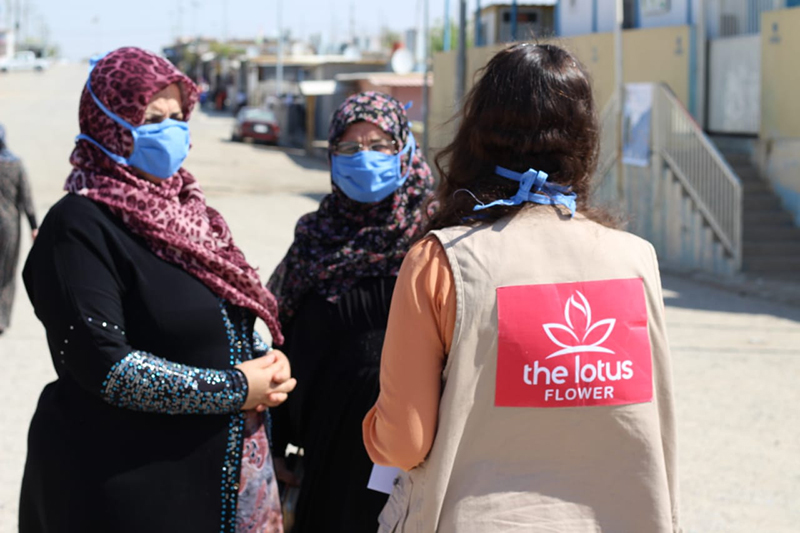
Type of Resource: Print, video, audio and more
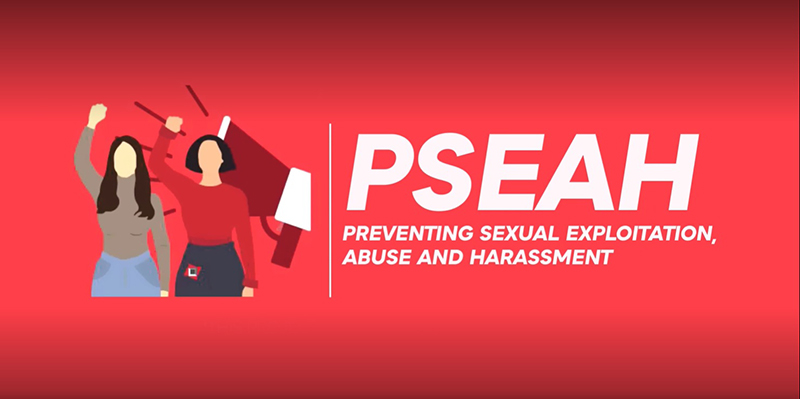
Materials by Age, Gender and Diversity Considerations
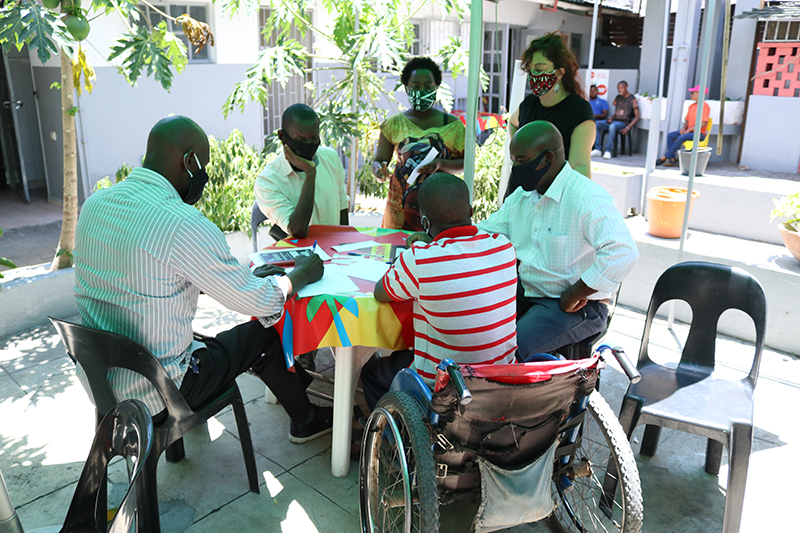
Languages
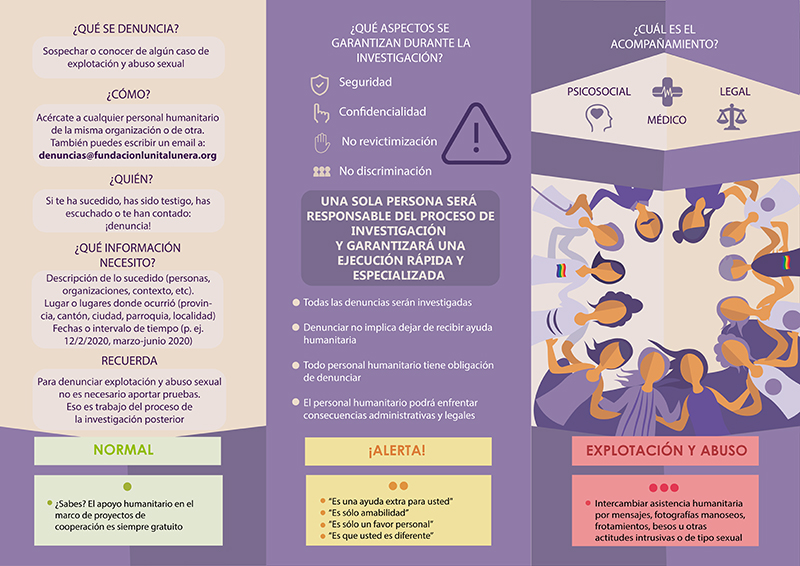
Regions and Countries
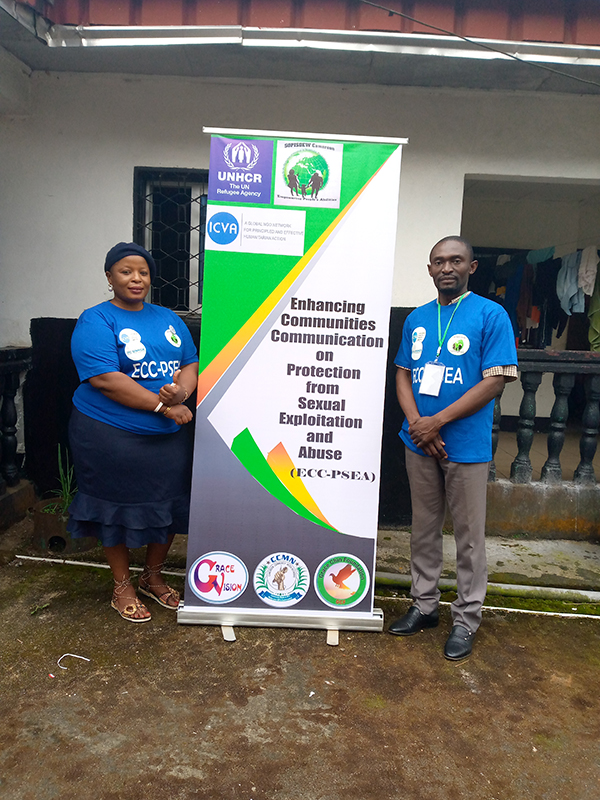
The link will open on your browser a specific file or folder that is available to view and/or download. Editable materials were developed using different file formats, such as Adobe Illustrator and Photoshop, Microsoft Office, etc., and may necessitate the correct software in order to edit and adapt them.
Adaptation of Products
Please note that the materials in the database are the creations of their authors and do not represent ICVA, IASC or UNHCR, nor their views or endorsement of these materials. If an organization wishes to build on an existing material in the database, they are asked to refrain from using the logos of IASC, ICVA or UNHCR, or from including acknowledgements, such as “this project was funded by the PSEA Community Outreach and Communication Fund”. NGOs are welcome to use these materials to develop their own products; however, in doing so we ask that they mindful of relevant sensitivities, undertake community consultation as part of this adaptation effort, and aim to avoid content that may be viewed as potentially retraumatizing or victim-blaming.
The PSEA Outreach Fund
In February 2020, UNHCR and the International Council of Voluntary Agencies (ICVA) partnered to launch the PSEA Community Outreach and Communication Fund (PSEA Outreach Fund). This initiative of the High Commissioner’s IASC Championship on Protection from Sexual Exploitation and Abuse (SEA) and Sexual Harassment (SH) was established to support the critical work that NGOs do every day to ensure that people we serve are fully aware that humanitarian assistance is never conditional on any transaction or exchange of any kind and to prevent situations of sexual exploitation and abuse. The Fund also invests in community-led efforts to help ensure that victims/survivors know how and where to safely report SEA, which is vital to respond to these unacceptable abuses in a timely and survivor-centered manner. The initiative is rooted in the recognition that local capacities and expertise, including that of affected communities themselves, are indispensable to effectively reinforcing protection from sexual exploitation and abuse.
Since its launch in 2020, the Fund has generated tremendous interest from NGOs, community-based organizations, safeguarding experts and other humanitarian actors involved in PSEA activities. Each year, all eligible applications are reviewed and scored by an interagency steering group composed of representatives from UN agencies, NGO networks and NGOs. More information on the PSEA Outreach Fund, call for applications, previously funded projects and their deliverables can be found on the Interagency PSEA Community Outreach and Communication Fund website.